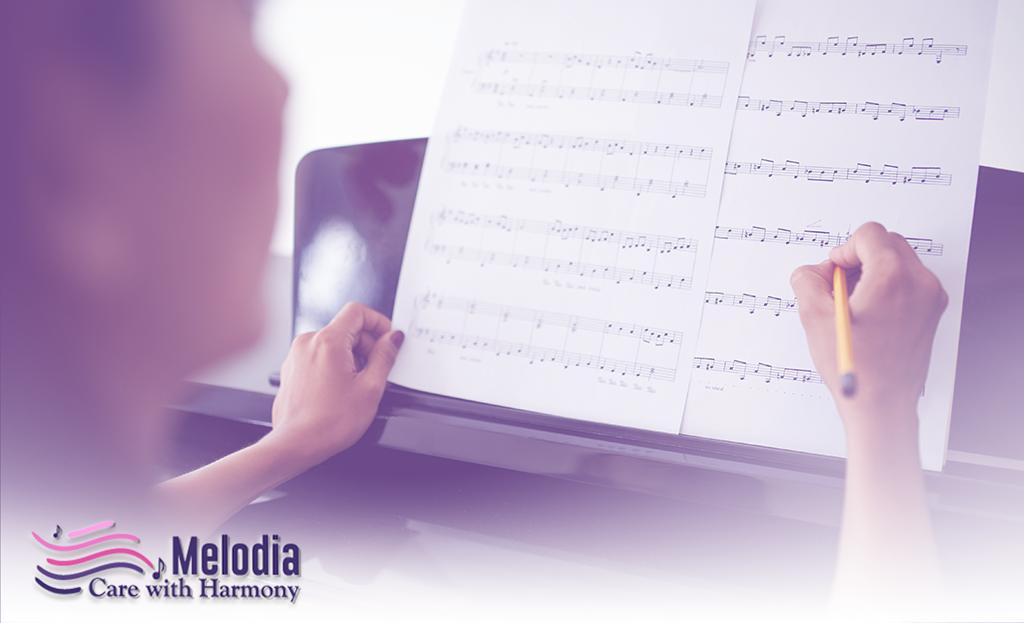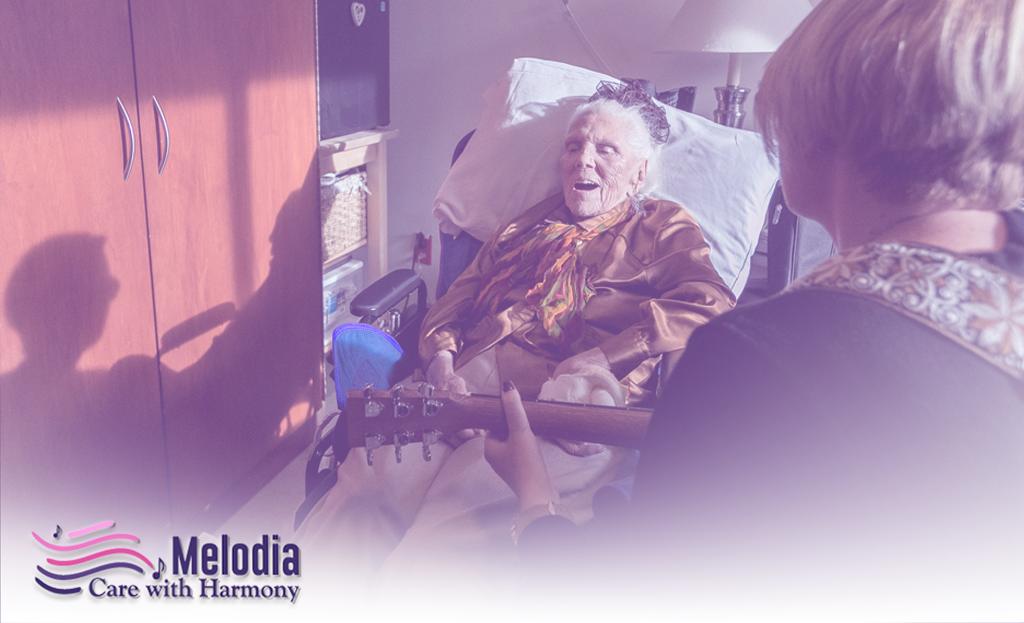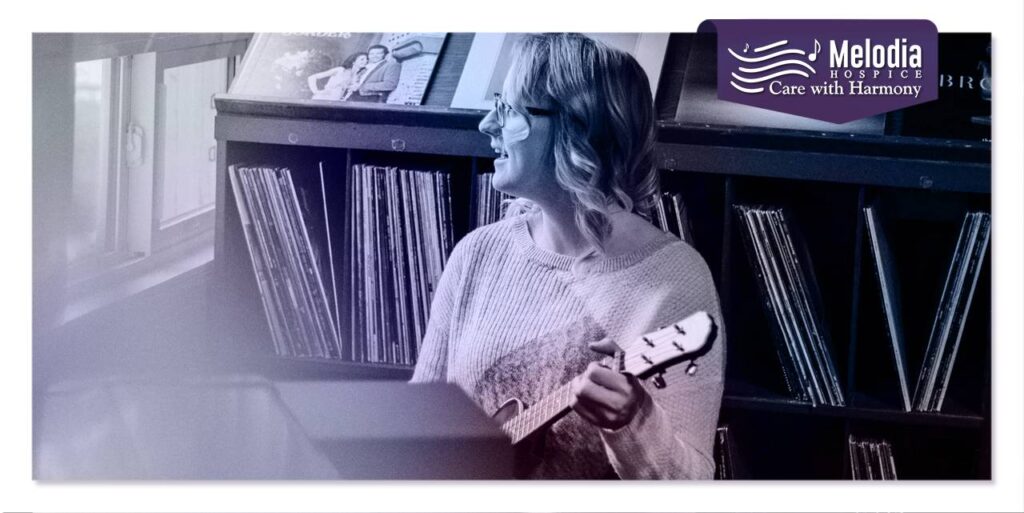Music therapy can be broadly described as music in a therapeutic setting to help improve mental health. Music therapy does not simply mean playing music for patients but requires patients to participate more actively, using the power of music to help improve patients’ mental health and treat mental health issues. The effect of music therapy on depression, anxiety, schizophrenia, sleep disorders and dementia is encouraging. Singing seems to be an excellent aid to treat all these diseases. Music seems to be good for personal and social cohesion. The reason must lie in the nature of music itself as an art form that supports human interaction in society.
Music therapy is a health profession in which music therapists use various aspects of music as physical, emotional, psychological, social, aesthetic and spiritual to help patients improve and maintain their health. It can improve the quality of life of patients by improving the following skills:
- Cognitive Function
- Motor Skills
- Emotional Development
- Behavioral skills
- Social Skills
Music therapy is a relatively new discipline; although the power of music to relieve stress and pain has been used for centuries, it was not until the 20th century that systematic research on the reasons for its efficacy began. It is used in medical hospitals, cancer centers, schools, alcohol and drug recovery programs, psychiatric hospitals as well as correctional institutions.
Music Therapy: An Art Beyond Words To Reduce Stress

Music therapy can be applied to the treatment of all age groups and different disease entities. Music therapy has proven to be an effective strategy for treating patients with mental stress. Music affects other parts of the brain. Part of this therapy is the ability of music to influence mood and social interaction. It has been proven that music therapy is associated with reducing depression, improving mood and reducing state anxiety. Music therapy can have a positive impact on social and behavioral outcomes and can promote emotional trends. Over the years, music therapy has successfully treated strokes in children with autism and adults, effectively improving their cognitive function, attention span and quality of life.
Music therapy is a structured interactive role that patients can use to successfully participate in, manage some of their symptoms and express feelings related to their experience. Music therapy proved to be a beneficial intervention for people with persistent mental illness. Music therapy invites and encourages people with low functional levels to participate as it employs a nonverbal medium. People have a positive connection with this medium in advance and in most cases, they use music for self-expression and pleasure throughout their lives.
Benefits Of Music Therapy
This can be highly personalized and suitable for people of any age even very young children can benefit from it. It also has multiple uses and can benefit people with various musical experience levels and different mental or physical health challenges. Interaction with music can:
- Activate brain regions that affect memory, mood, movement, sensory transmission, some involuntary functions, decision-making and rewards etc.
- Lower heart rate and blood pressure
- Relax muscle tension
- Release endorphins
- Relieve stress and encourage feelings of calm
- Strengthen motor skills and improve communication between children and young people with developmental and/or learning disabilities
Music can have a powerful effect on people with dementia and other memory-related disorders. In general, music therapy can increase positive emotions, for example:
- Calm
- Euphoria
- Confidence and empowerment
- Emotional intimacy
Technique
If someone is experiencing depression, he/she may want to use music to improve mood and increase happiness naturally. They want to try music therapy for other symptoms of depression, such as:
- Anxiety
- Insomnia
- Lack of concentration
During music therapy, he/she can listen to different types of music, play instruments and even compose songs. He/she may be asked to sing or dance. Your therapist may encourage you to improvise or they may develop a structure for you. While performing these tasks, you may be asked to adjust your emotions or let your emotions guide your actions. For example, if you are angry, you may play or sing loud, fast, and discordant chords. You can also use music to explore ways to change your feelings. If you express anger or stress, your music therapist may respond by asking you to listen to or create music in a slow, soft, and soothing tone. Music therapy is usually one-on-one, but you can also choose to participate in group meetings if you are free.
The meeting with the music therapist takes place wherever they practice. This may be:
- Clinic
- Community Health Center
- Correctional facilities
- Hospital
- Private Office
- Physiotherapy practice
- Rehabilitation facilities
No matter where you happen to be, the room where you work together will be a quiet environment without external interference.
Music Therapy May Be Helpful For People With The Following Conditions
- Alzheimer’s disease
- Anxiety or stress
- Autism
- Heart condition
- Chronic pain
- Depressed
- Diabetes
- Difficulties in verbal and nonverbal communication
- Emotional disorders
- Inferiority complex
- Headache
- Impulsive
- Negative emotions
- Post-traumatic stress disorder (PTSD)
- Problems related to childbirth
- Rehabilitation after injury or medical procedures
- Breathing problems
- Substance use disorder
- Surgery-related issues
- Traumatic Brain Injury (TBI)
- Movement or coordination problems
It Is Helpful For The Following Patients
- Insomnia
- Obsessive-compulsive disorder (OCD)
- Schizophrenia
- Stroke and neurological diseases
Music Therapy Is Also Commonly Used To Help Children And Adolescents:
- Develop their identity
- Improve their communication skills
- Learn to regulate your emotions
- Recover from trauma
- Self-reflection
Interventions With Music Therapy

Interventions in music therapy involve four main interventions:
Composing Song Creation

It provides an opportunity for expressing positive and beneficial expression. Anyone can create lyrics that reflect their thoughts and experiences and choose the instruments and sounds that best reflect the emotions behind the lyrics. This process is very effective and can help build self-worth.
The Lyric Analysis

Introduces a novel and a less threatening way to deal with emotions, thoughts and experiences. Encourage people receiving music therapy to provide insight and substitute lyrics that can be applied to obstacles in their lives and treatments. We are providing deeply touched and appreciated Lyric analysis which provides individuals with an opportunity to identify the lyrics related to their experience, which connects with the listener on a deeper level.
Actively Listen To Music

Music can be used to regulate emotions. Due to its rhythmic and repetitive aspect, music attracts our brain’s neocortex, thereby calming us down and reducing impulsivity. We often use music to match or change our mood. Although it is good to match music to our emotions, it may leave us in a state of depression, anger or anxiety. In order to change the emotional state, the music therapist can play the music that matches the person’s current mood and slowly transform into a more positive or calm state.
Types Of Music Therapy
Music therapy can be an active process in which the client plays the role of creating music or it can be a passive process that involves listening to or responding to music. Some therapists may use an integrated approach that includes active and passive interaction with music. Various methods have been established in music therapy, including:
Analytical Music Therapy

Analytical Music Therapy encourages you to use impromptu musical “dialogue” to express your subconscious thoughts through singing or playing an instrument. You can reflect and discuss with your therapist later.
Benenzon Music Therapy

This form combines some concepts of psychoanalysis with the process of making music. Benenzon music therapy involves finding your “musical sound characteristics,” which describe the external sound that best matches your internal mental state.
Cognitive Behavioral Music Therapy

(CBMT) combines cognitive-behavioral therapy (CBT) with music. In CBMT, music is used to reinforce certain behaviors and change other behaviors. This method is structured, not improvised, and may include listening to music, dancing, singing or playing an instrument.
Community Music Therapy

This format focuses on using music to promote change at the community level. It is done in a group environment and requires a high degree of participation from each member.
Nordoff-Robbins Music Therapy

Also known as Creative Music Therapy, this method involves playing an instrument (usually a cymbal or drum) while the therapist uses another instrument for accompaniment. The improvisation process uses music as a way to help achieve self-expression.
The Bonnie Method Of Directing Imagery And Music (GIM)
This therapy uses classical music to stimulate the imagination. In this method, you can explain the feelings, memories and images you experience while listening to music.
Vocal Psychotherapy

In this form, you use various vocal exercises, natural sounds and breathing techniques to connect your emotions and impulses. This approach aims to establish a more profound sense of connection with oneself.
Music Therapy In Hospice Care
In hospice care and palliative care, music therapists use song composition, improvisation, guided image and music along with lyrics analysis, singing, instrument performance and music therapy relaxation techniques to treat the many needs of patients and families receiving care. The needs that music therapists often deal with in hospice care include social (e.g. isolation, loneliness, boredom), emotions (e.g. depression, anxiety, anger, fear, frustration), cognition (e.g. neurological disorders, disorientation, confusion), physical (e.g. pain, shortness of breath) and mental (e.g. lack of spiritual connection, need for spiritual-based rituals).
After a music therapist has completed at least a music therapy undergraduate degree or equivalent, a clinical internship (average of 1040 hours) and successfully passed the CBMT, he/she obtained the Committee Certification (MT-BC) exam from the Music Therapist Certification Board (CBMT) he /she can provide services in the hospice care.
Effect Of Music Therapy On Terminally Ill Patients

When we work with people who cannot be cured, music therapy can improve the quality of life by addressing the emotional, mental and physical needs that may arise during this time. Musical experiences in palliative care may include listening to music, discussing specially selected lyrics, songwriting, improvisation, singing and playing musical instruments. A person’s musical, cultural and religious background may be included in the meeting to provide a personalized approach. In all cases, respect for the needs and preferences of the patient is the most important.
For people who are terminally ill, music therapy can catalyze establishing verbal and nonverbal communication.
The proficient use of music can promote emotional self-expression and provide a supportive and non-threatening environment with opportunities to face fears and discuss current concerns.
Music associations can promote life revival and help solve major personal problems. Music therapy can help alleviate isolation and loneliness by providing social interaction and sharing personal experiences with others. The use of religious music can provide spiritual comfort and support for personal beliefs.
Music significantly reduces the perception of physical pain and the duration and severity of nausea and vomiting caused by chemotherapy.
Carefully selected music can promote relaxation, relieve anxiety, excitement and insomnia or can provide motivation for physical activity and enhance happiness.
The tools and materials can be adjusted to encourage as many meetings as possible. Music therapy courses can be offered individually or with family, friends or other patients. The bed can also provide portable instruments and audio equipment. Live music and recorded music can be used during treatment depending on the patient’s needs and preferences and the technology used. In palliative care, music therapy can: Help reduce fear and anxiety Strengthen identity and self-concept and reduce feelings of isolation.
Conclusion
Music therapy may not constitute adequate treatment for medical conditions, including mental health disorders. However, when combined with medications, psychotherapy and other interventions, it can become an essential part of a treatment plan. If you have difficulty hearing, wear a hearing aid or get a hearing implant, you should consult an audiologist before receiving music therapy to make sure it is safe for you. Similarly, if you are experiencing pain, illness, injury or physical condition that makes it not easy to exercise, then music therapy combined with exercise or dance may not be suitable. If you want to explore music therapy, please consult your doctor or therapist.
You can reach Melodia Care at any time of day or night by contacting us through our 24/7 online customer support chat or by calling 1-888 635-6347 (MELODI-7).










